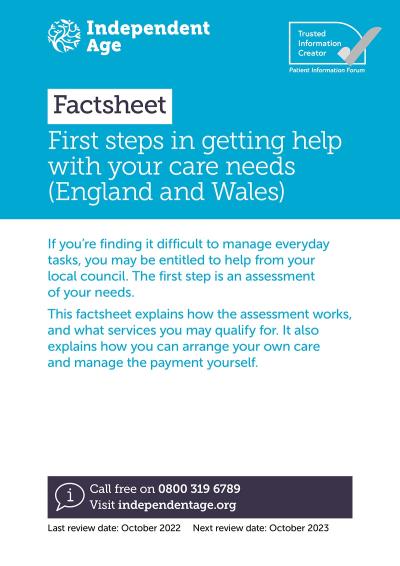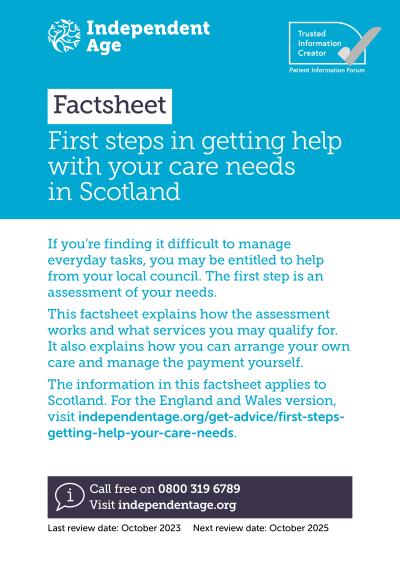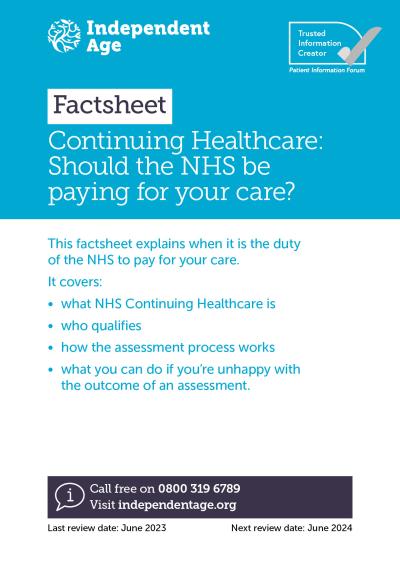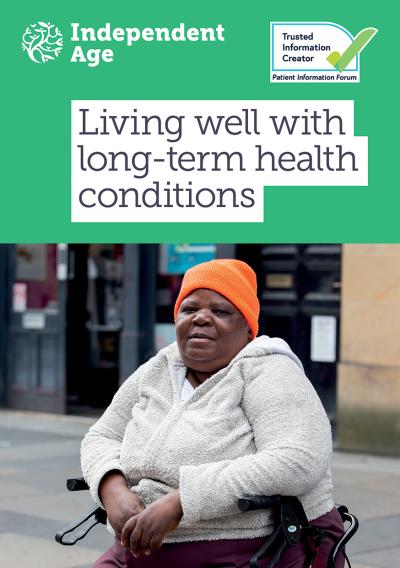Related publications

First steps in getting help with your care needs in England and Wales

First steps in getting help with your care needs in Scotland

Continuing Healthcare: Should the NHS be paying for your care?

Before you’re discharged, the hospital should make sure you’ll be able to cope at home. You – and, if you want, your family or carers – should be involved in any planning for your discharge.
Plans for your discharge should start from the day you arrive in hospital and you should be fully involved in this process. Some questions you can ask to prepare for your discharge include:
Each hospital will have its own discharge policy. You can get information about this by asking your discharge coordinator, the ward manager or the hospital’s Patient Advice and Liaison Service (PALS). You must not be discharged from hospital until:
If care is being provided for you when you leave hospital, make sure you know who will provide it and how you can contact them. Ask the person or team in charge of your discharge if you’re unsure of anything.
If you think you’re being discharged before you’re well enough to go home, or you have any other concerns about your discharge, call our Helpline on 0800 319 6789 to arrange to speak to an adviser.
You might be entitled to some free short-term care to help you recover when you leave hospital. The type of support given will depend on your health and care needs. You could be offered:
You may need equipment or home adaptations – for example, a hoist or grab rails. If you’re assessed as needing equipment or adaptations that cost £1,000 or less, your local council must provide them free of charge, regardless of your finances.
Long-term support after a hospital stay could include care services at home or in a care home.
If it seems you’ll need ongoing care after a hospital stay, the hospital must notify your local council. Before the hospital staff let the council know, they must consult you and any carers you have. They must also consider whether you should get NHS Continuing Healthcare, and share their decision with the council.
The council’s adult social services team will carry out a care needs assessment, and they should inform the hospital:
The care needs assessment may need to be done before you can safely leave hospital. You may qualify for some funding from your council or you may need to pay for all your care yourself. For more information, see our factsheet First steps in getting help with your care needs.
Long-term care may also be fully funded by the NHS through NHS Continuing Healthcare. This is for people with a high level of health and care needs. If this seems appropriate for you, you’ll be given an assessment to work out whether you qualify. You can also ask for one before you leave hospital. The assessment is separate from the care needs assessment and it could take place in hospital but may happen later, when your ongoing needs should be clearer.
If you do qualify, the NHS will pay for all the care you’re assessed as needing. NHS Continuing Healthcare isn’t means-tested, so anyone who may need it can apply, regardless of their finances.
You mustn’t be discharged from hospital until the support you need to be safe has been put in place.
Before you leave hospital, make sure any care or support you’ll need has been put in place, and that you know who to contact about these arrangements. If you’ve been given any new equipment or aids to help you live independently, check that you know how to use these. Before you’re discharged, make sure you know the following information:
Make sure your transport home has been arranged, whether this is a lift from someone you know, a taxi or hospital patient transport. If you’re on a low income, you may be able to get help with travel costs. See our webpage Help with health costs for more information.
Check that you have your personal belongings with you, including any valuables you placed in a hospital safe. If you left your door key with a friend or neighbour, make sure they will be available to let you in.
Some charities and other local organisations offer Home from Hospital services. This might involve someone visiting you at home for a short time after you’re discharged, to help with tasks such as shopping, collecting pensions or picking up prescriptions. Visit Age UK, the British Red Cross or Royal Voluntary Service to see if they run these services in your area.

If you weren’t given a care needs assessment before you left hospital and think you should have been, contact your local council’s social services department. Find their contact details through the government website.
If you feel you’re being discharged too early from the hospital, or you think you’ll need more help and support when you return home, call our Helpline on 0800 319 6789.
By calling Independent Age's free and impartial Helpline, you can get information and advice from one of our friendly advisers, or order our free guides.